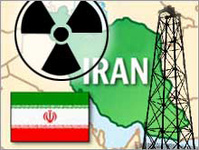ID :
223075
Fri, 01/13/2012 - 14:55
Auther :
Shortlink :
http://m.oananews.org//node/223075
The shortlink copeid
Japan PM: Govt yet to decide on Iran oil cuts

Japan's prime minister said Friday the government has yet to decide on whether it will reduce oil imports from Iran in line with U.S. sanctions, saying businesses implications need to be considered, the Associated Press reported.
Yoshihiko Noda's comments retreated from the strong support voiced a day earlier by his finance minister, Jun Azumi, who said Japan would start reducing oil imports as soon as possible.
Noda described Azumi's remarks as a "personal view," and said his government needs to first consult with businesses about the sanctions, reflecting the importance of gaining consensus in Japanese society, as well as technical aspects of what such a decision would involve.
Noda didn't rule out Japan's participation in the sanctions effort, and said he shared strong concerns about Iran's nuclear program.
"Japan's basic stance is to resolve such matters diplomatically and peacefully," he said during a news conference after he announced a new Cabinet lineup. "We need to consult with the business community, and we need to work out details with U.S. officials. We have to think about the implications for Japanese banks, and what measures are needed to resolve possible negative impact."
Washington is seeking to win global support for sanctions aimed at halting what Western governments say is Iran's effort to develop nuclear weapons. The sanctions, targeting Iran's main export of oil, would bar financial institutions from the U.S. market if they do business with Iran's central bank.
Azumi's supportive comments Thursday came after a meeting with U.S. Treasury Secretary Timothy Geithner, who had traveled to China and Japan this week partly to muster support for the sanctions. He got a cool response from Beijing.
Tehran denies the West's allegation that the program is aimed at building nuclear weapons.
Earlier Friday, Foreign Minister Koichiro Gemba also took a cautious stance toward the sanctions, warning that the move could drive up global oil prices that would only benefit Tehran and hurt the global economy.
Japan is heavily dependent on imported oil and natural gas to meet its energy needs. It obtains about 9 percent of its oil from Iran, but that portion has steadily declined over the last five years. Japan's energy demands have increased even more since it shut down many nuclear plants in the wake of last year's tsunami and the nuclear crisis in Fukushima.
"We need to respond carefully and wisely," Gemba said during a joint news conference with visiting French Foreign Minister Alain Juppe. He emphasized that maintaining stable oil prices was crucial to the effort.
"What's going to happen if oil prices surge is that sanctions will not be effective," Gemba said. "The higher oil prices, the more affluent Iran becomes," he said, apparently referring to the likelihood of some countries ignoring the sanctions and continuing to buy from Iran.
Rising oil prices could "have an adverse effect not only on the Japanese economy but also the entire global economy," he said, adding that his recent trip to the Mideast was made in anticipation of possible sanctions on Iran.
Gemba said Iranian oil accounts for about 9 percent of Japan's oil imports, having decreased from 500,000 barrels per day to 300,000 barrels per day over the past five years.
Juppe, however, brushed off Gemba's concerns about oil prices, saying that similar sanctions against Libya in the past did not drive up oil prices.
"Minister Gemba sounds extremely wary of higher oil prices, but I don't think that would necessarily be the case," Juppe said. "Once we had a similar situation with Libya but that didn't lead to higher oil prices. We also believe we can obtain oil from other oil producing countries."
He also said the impact from the suspension of transactions with Iran's central bank would be "minimal."
"I think we should prioritize what we consider a more pressing issue - the economy or nuclear weapons development," Juppe said. "We have to decide which is more important."





